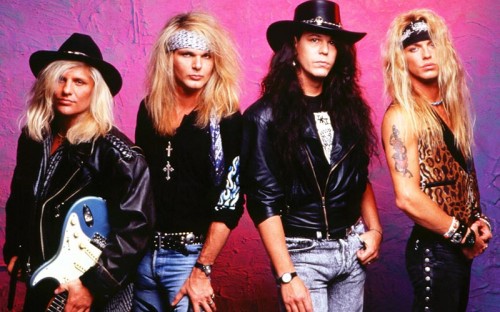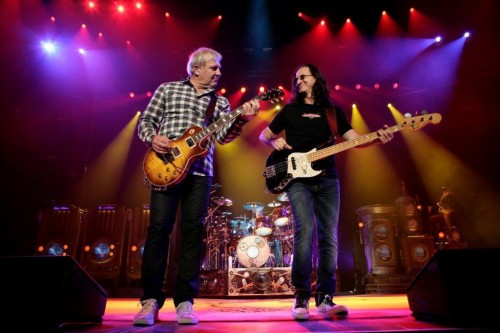My Back Pages is a series that explores our relationships with the music we grew up with. Dead Kennedys are the subject of this installment.
By the time I got to high school, I’d made my way through quite few different styles of music. First, it was whatever pop and rock that I could find on the radio. Shortly after getting my first stereo, I began listening to more classic rock, hard rock, and eventually heavy metal. I stayed there for a few years and then one day I was introduced to punk rock via a secondhand Sex Pistols cassette that I bought from a friend.
I liked punk quite a bit – I was just old enough to remember people talking about the music that was born right around the time I was. This was pre-1993, before bands like Green Day and the Offspring started getting radio airplay and veterans like Bad Religion finally got some of the recognition that they deserved. You could still occasionally see articles or pictures in the newspaper, or hear stories on trashy “news” programs like “A Current Affair” or “Donahue.” Of course, there was also the experience of seeing the other kids who were five or 10 years older than me walking around with T-shirts and patches on leather jackets with different band names like “Ramones” or “Minor Threat.” And, frankly, there nothing quite as appealing as the pure and utter disgust that you could hear in an adult’s voice as they looked upon a group of teenagers standing on a corner or in a parking lot, and said something like “…bunch of goddamned punks…”
I’d started buying a few albums here and there, gradually increasing the number of punk rock albums that were part of my collection, and one day I read a magazine article about American Hardcore punk. In that article, it mentioned a few bands that I was familiar with — like the Misfits and Minor Threat — as well as a couple that I knew in name only — Black Flag, the Bad Brains, and the Dead Kennedys. Shortly after reading the article, I took some of my hard-earned paper route money to the local music store and bought three cassettes — Black Flag’s “In My Head,” the Bad Brains’ self-titled debut and “In God We Trust Inc.” by the Dead Kennedys. When I got home, the first one to go in the tape player was the DK’s, and as I pressed the play button I had absolutely no idea what was going to happen next.
Oh.
My.
God.
I had never heard anything like this in my entire life.
Less than 15 minutes later, it was all over. At the time I didn’t quite understand what an EP was, that there honestly wasn’t enough material to bother making a second side of the tape, and that the message printed on the B-side of the cassette was only too typical of the kind of snarky, anti-establishment ethos that the Dead Kennedys relished in:
What I did understand, however, was the message. For perhaps the first time in my life, here was a band writing music that instantly appealed to me. As the smoke cleared and the dust settled, I sat there with a devilish grin and tried to make sense of the emotions that were running through my head right then. I was energized, kinda shocked, and frankly a little scared about what might happen if my parents had any idea what had just come out of the speakers of my stereo — not just the noise, but the attitude.
The Dead Kennedys were loud, abrasive, and cynical — but, most importantly they were a band that could make you think, which probably made them more dangerous (and, in some instances, more hated) than almost any other punk band of their era. “Chickenshit Conformist” (from “Bedtime for Democracy”) uses the oft-quoted/paraphrased line “The more things change, the more they stay the same,” and there are plenty of instances where this holds true in the DK’s music. Selectively replace a few names, products, companies, or pop-culture icons and phrases with a more current counterpart, and the music is just as relevant now as it was three decades ago. “Holiday in Cambodia” could just as easily be “Afghanistan,” hearing “Kill the Poor” while looking at a newly gentrified neighborhood full of Starbucks and SUVs seems a little too perfect, and there’s not much in the band’s catalog more ironic than listening to “MTV Get Off the Air” while realizing that there is no more music on Music Television anymore. Likewise, while “Soup is Good Food” (from 1985’s “Frankenchrist”) was originally written about the legions of blue-collar workers that were seeing their futures wiped away by cheap foreign labor and mechanization, the message seems just the same for their white collar counterparts today: “You’re all replaceable…and we don’t care.”
However, it is in some of the band’s more sinister, Orwellian songs (such as “Riot,” “I am the Owl” or “Police Truck”) that the correlation between past and present is especially significant, as well as being especially depressing. The Dead Kennedys painted a picture of a world where authority shouldn’t be questioned, and a small, shadowy handful of people made all the decisions that really mattered. Feeling hopeless, powerless and seeing the amount that we’re all monitored, tracked and force-fed different dogmas, it’s difficult not to think that perhaps some of that dystopian future that the band predicted came true.
A lot of people like to talk about a song, album or artist that changed their lives — and, frankly, any music that’s worth a damn should have that ability. But for me, more than any other band I’ve listened to before or since, the Dead Kennedys were the right band at the right time and sparked a fire that still burns today. I was an awkward outsider, didn’t like listening to anything that anyone told me, and was boiling over with hormones and energy. Music like this — a symphony of power saws and bullets with snarky, intelligent messages behind it — was exactly what the doctor ordered.




Leave a Reply